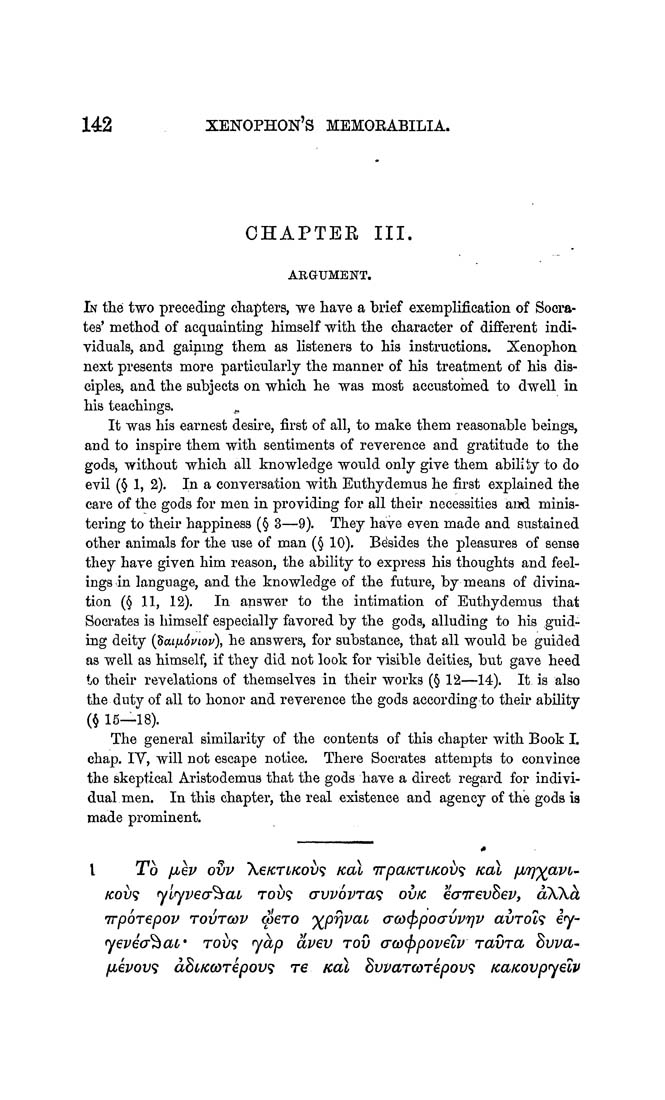142 xenophon's memoeabilia.
CHAPTER III.
ARGUMENT.
In the two preceding chapters, we have a brief exemplification of Socra¬
tes' method of acquainting himself with the character of different indi¬
viduals, and gaining them as listeners to his instructions. Xenophon
next presents more particularly the manner of his treatment of his dis¬
ciples, and the subjects on which he was most accustomed to dwell in
his teachings.
It was his earnest desire, first of all, to make them reasonable beings,
and to inspire them with sentiments of reverence and gratitude to the
gods, without which all knowledge would only give them ability to do
evil (§ 1, 2). In a conversation with Euthydemus he first explained the
care of the gods for men in providing for all their necessities and minis¬
tering to their happiness (§ 3—9). They have even made and sustained
other animals for the use of man (§ 10). Besides the pleasures of sense
they have given him reason, the ability to express his thoughts and feel¬
ings in language, and the knowledge of the future, by means of divina¬
tion (§ 11, 12). In answer to the intimation of Euthydemus that
Socrates is himself especially favored by the gods, alluding to his guid¬
ing deity {daLfiSpiop), he answers, for substance, that all would be guided
as well as himself, if they did not look for visible deities, but gave heed
to their revelations of themselves in their works (§ 12—14). It is also
the duty of all to honor and reverence the gods according to their ability
{§ 16—18).
The general similarity of the contents of this chapter with Book I.
chap. IV, will not escape notice. There Socrates attempts to convince
the skeptical Aristodemus that the gods have a direct regard for indivi¬
dual men. In this chapter, the real existence and agency of the gods is
made prominent.
Tb ptev odv XeKTtKovs Kal TTpaKTtKovs Kal ptyxavt-
Kovs yiyvea^at tovs avvbvTas ovk eaTrevSev, dXXd
TTpoTepov TOVTCOV cpeTO XPW^^ acocppoavvyv avTols iy-
yevia^at* tovs ydp dvev tov aco(ppovelv Tama Svva¬
ptevovs dStKcoTipovs Te Kal SvvaTcoTipovs KaKovpyelv
|








